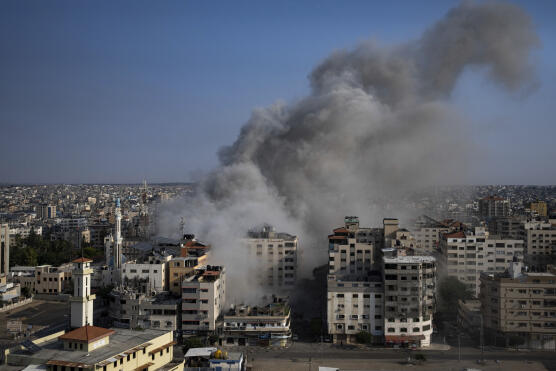Recently, the world witnessed an unprecedented escalation of conflict between Hamas, the Palestinian militant group, and Israel. This surge in violence raised questions about the motivations behind Hamas’s attack on Israel. To understand the context and significance of this attack, we delve into the complex web of political, regional, and historical factors that have contributed to this volatile situation.
Revenge and Political Divide
Hamas claimed responsibility for the attack, citing revenge as one of its motivations. It pointed to a series of actions by Israel at Jerusalem’s Al-Aqsa mosque and in the West Bank as triggers for its offensive. These actions undoubtedly added fuel to the already smoldering tensions in the region. However, it’s essential to note that Prime Minister Benjamin Netanyahu’s coalition government had been intensifying its crackdown on what it labeled as rising Palestinian terror attacks for more than a year.
Disrupting Negotiations
Former U.S. intelligence and military officers believe that the timing of the Hamas attack was strategically chosen to disrupt ongoing negotiations between Israel and Saudi Arabia. These negotiations held the promise of a historic step towards normalizing relations between Saudi Arabia and Israel. Such a diplomatic breakthrough could have had far-reaching consequences, potentially leading other Arab states to follow suit. It was seen as a potential end to decades of hostility between Israel and its neighbors.
Iran’s Influence
Iran, a staunch supporter of Hamas, saw this attack as an opportunity to exert pressure on its longstanding adversary, Israel. Iranian President Ebrahim Raisi explicitly stated his opposition to regional countries establishing bilateral relations with Israel, accusing Israel of seeking such relations for its regional security. Iran’s interest in destabilizing the region and thwarting any rapprochement between Israel and Arab nations was pivotal in this situation.
Complex Negotiations
The negotiations between Israel, Saudi Arabia, and the United States were far from straightforward. Under Crown Prince Mohammed bin Salman, Saudi Arabia signaled a willingness to recognize Israel, driven by the potential economic benefits it could provide. However, the Saudis also sought U.S. support in developing a civilian nuclear program, a condition that faced opposition from hard-right elements in Israel’s coalition and some U.S. senators.
Additionally, U.S. President Joe Biden emphasized the importance of addressing the Palestinian issue as part of any agreement. This demand clashed with Netanyahu’s settlement expansions in the West Bank, raising concerns among senators and complicating the negotiation process.
Escalating Violence in the West Bank
The West Bank has been a flashpoint of violence, with Israeli settlers attacking Palestinians at an alarming rate in 2023. Reports indicate at least 700 such attacks, the highest recorded number, according to the U.N.’s humanitarian agency. Israel’s far-right National Security Minister Itamar Ben-Gvir even endorsed the expansion of settlements in response. Netanyahu’s government further exacerbated tensions by announcing plans to build 5,000 new Israeli settlements, which are considered illegal under international law.
Domestic Political Divide
Israel faced political divisions internally as Netanyahu pushed for judicial reforms to weaken the Supreme Court. These reforms triggered widespread protests across the country. The reforms protected a sitting prime minister from removal except for health or mental health reasons, a move seen by critics as an attempt to secure Netanyahu’s leadership amidst corruption allegations. A subsequent part of the reforms prevented the court from declaring government decisions unreasonable, raising concerns among Israelis about the erosion of democratic checks and balances.
Conclusion
The Hamas attack on Israel is not driven by a single factor but rather by a complex interplay of revenge, regional power dynamics, domestic politics, and longstanding conflicts. It disrupts fragile negotiations that promise to reshape diplomatic relations in the Middle East. The attack further underscores the deep-rooted tensions and divisions within Israel and the region as a whole. While it may have served short-term objectives for Hamas and its backers, it has brought the region closer to a precipice, highlighting the urgent need for diplomacy and conflict resolution.

